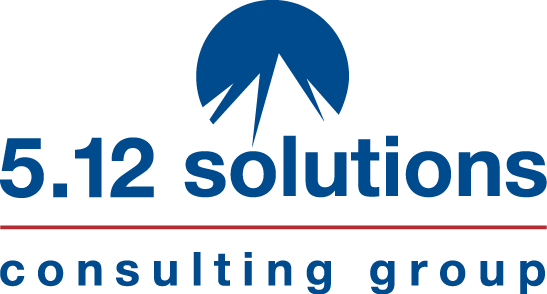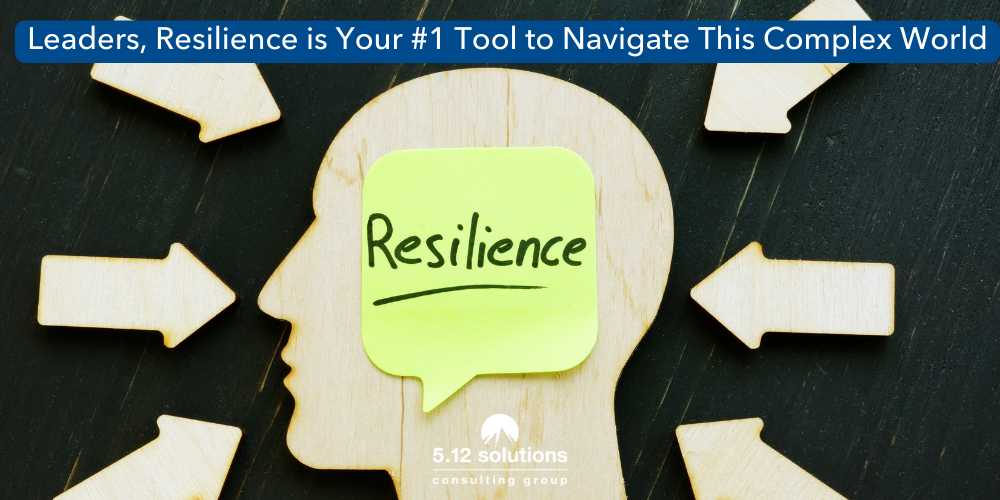Resilience is the process and outcome of successfully adapting to difficult or challenging life experiences, especially through mental, emotional, and behavioral flexibility and adjustment to external and internal demands.
– American Psychological Association
Now more than ever, it is vital to develop a really critical skill in leadership and in life: resiliency.
Why? Because it is necessary not only to survive, but also to thrive in this increasingly complex world we live in.
I’m reflecting back to a podcast I did with Dr. David Palmiter, a true expert in the space of resilience who shared some amazing insight I know anyone reading this will benefit from. Here, I’m sharing some of my favorite highlights from our conversation together.
Meet Dr. David, an Expert on Resilience
But first, a little background on Dr. David, who is a full professor of psychology at Marywood University in Scranton, PA, as well as a fellow of the American Psychological Association. Dr. David is a board-certified clinical psychologist with over 30 years of private practice experience.
Also a published author, he has given over 200 workshops to mental health professionals across the country. And he’s been a source over 300 times for media outlets, like the Washington Post, CNN and the Wall Street Journal.
To drive home the point on why resilience is key, Dr. David started our conversation by sharing this profound insight:
“We’re all living down a rabbit hole. None of us have had this experience before and the cumulative stress, as well as our pre-existing vulnerabilities, seem to be significantly taxing our mental health.”
And what about people who see otherwise? Dr. David has a dose of reality: “When people walk around declaring, ‘Oh, everything’s awesome. It’s nothing but greatness,’ I wonder either what they’re selling – or what kind of insecurity they might have, because all of us have some degree of loss these days and being authentic with that is important.”
What Resilience Is Not
Resilience isn’t about:
- Pretending everything is “great”
- Ignoring things that are around you
- Hiding your emotions
- Stifling who you are to “fit in”
- Being “tough as nails”
- “Sticking it out” …no matter what
- Keeping a “stiff upper lip”
- …and all those other clichés we’ve all probably believed at some point
What It Really Means to Be Resilient
In fact, the very foundation of resilience is authenticity and self-compassion: Dr. David recommends we all take some regular time at least once or a few times weekly to focus on what our losses are. We need that time to allow ourselves to have an authentic experience – free from self-blame or blaming others.
Resilience is about recognition: If we don’t recognize our emotions, how we’re feeling, it’s hard to be resilient. Yes, resilience is about tackling adversity and bouncing back, but we can still experience a full range of emotions. After all, we are human!
How to Be More Resilient
It doesn’t have to be difficult at all. So, where do you begin?
Start with the stillness.
All you need is about 10 minutes. Dr. David suggests a simple exercise gleaned from Dr. Kristin Neff:
- Close your eyes
- Put your hand on your heart
- Imagine yourself as a vulnerable child
- Now pull to mind what you’re feeling, what losses you have
Do a self-compassion check. See if you find yourself saying statements like: “Oh, well, but no one’s died.” Or “At least I still have my job.”
Says Dr. David, “You’re not mitigating your loss with that kind of possible comparison. What you’re doing is just authentically owning what your loss is. For those folks who live a lot in their heads, and I sometimes am guilty of that, I have a couple of YouTube videos that can prime getting in touch with what we’re feeling, not escalated or not created, but just to get us more in touch.”
Next Comes Empathy, Then Reassurance
From there, the next step is to be empathetic, which is important to differentiate from reassurance. Many times in families or even with our kids, we tend to jump right to reassurance. “And that is not a full experience,” explains Dr. David.
Only when we’re empathic of what we’re feeling, can we then follow up with reassurance. The role of empathy – and its part as a foundational piece of resilience – cannot be underestimated.
Leaders (especially corporate) may be thinking that these are just soft skills, it’s so much more.
These are the things that ultimately accelerate business results:
- Deeper levels of trust on teams
- The ability to have meaningful conversations
- and much more…
I like to say that really understanding the importance of connectedness and the link to empathy is powerful for any person, any human being – but especially if you’re a corporate leader.
Not convinced?
I can tell you assuredly that if you think you can enjoy a social connection of a high quality without empathy…think again.
Empty, feel-good-fluff this is not: “I’m not just some academic waxing philosophic,” asserts Dr. David. “This is all based on hard science – decades of hard science. So every statement I’m making, flashing in the back of my mind is the meta-analysis, or the peer reviewed comprehensive review of the literature that supports what I’m saying.”
Of course, he relies on his many years of clinical experience, but in the end, he says, “This is all based on very well-constructed peer reviewed science.”
Listen to the full podcast episode here to gain even more insights into resilience, what it means for leadership today and in the future, and how you can incorporate simple practices into your everyday life.
Wouldn’t it be amazing if you could measure behavioral change and your return on investment? 5.12 Solutions is one of the few coaching companies in the world that actually does that!
Learn more about our proven, powerful coaching and leadership development programs here.
Build Your Resilience By Downloading Our Free Resilience Toolkit Today!
The RESIL model is a circular and never-ending process and it assumes that we are all the captain of our own ship. Of course, in life there are things that are unfair and out of our control, but resilient leaders choose what to focus on, how to think about the situation, the actions they will take and what they will learn.
Download our RESIL toolkit below to help apply the concepts in this post.

